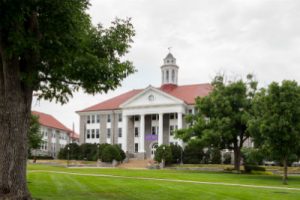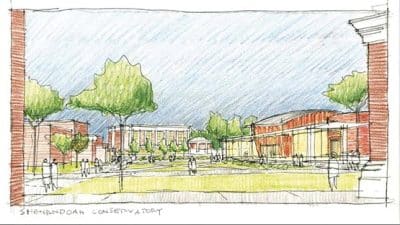
With much of the country’s businesses and schools closed to stem the spread of COVID-19, access to broadband has become even more critical.
In rural America, an already-troubling situation is being made worse by lack of the critical connections high-speed internet can provide. Data compiled by the Federal Communications Commission shows that 26.4% of rural Americans lack access to broadband, compared to only 1% of urban Americans.
Ben Rowe, national affairs coordinator for the Virginia Farm Bureau Federation, said social distancing and the risks posed by COVID-19 make the need to expand broadband access to rural America greater than ever.
“We are seeing state and nationwide closures of schools and universities. For those in areas with broadband access, that means moving classroom instruction, coursework and educational resources online. For those in rural areas without connectivity, these online opportunities are not available,” Rowe said. “Many rural families have relied on public libraries and even fast food restaurants for internet access, but social distancing measures are limiting those points of access.”
R.J. Karney, director of congressional relations for American Farm Bureau Federation, said the lack of rural broadband also could put an even greater burden on farm households that rely on off-farm jobs. Without an option to work from home, “their jobs could be in jeopardy.”
He added that with the drastic decline in primary care physicians throughout rural America, broadband access also is important for rural medical facilities because it allows medical personnel to consult with specialists on test results, diagnoses and treatments.
“With healthcare facilities in all communities poised for an onslaught of potentially very sick and certainly very contagious COVID-19 patients, doctors and nurses in rural facilities have to be able to quickly connect with specialists,” Karney said. “Telemedicine networks, which require broadband access, are likely the best way to do that.”
There’s also the human connection to consider, Karney continued.
“At a time when we’re supposed to be isolating ourselves to protect our physical health, keeping in close touch with friends and family is important to our mental health. Many of us rely on high-speed-internet-dependent tools like Facebook, Facetime and Skype to do that.”
Rowe said the U.S. Senate’s passage of SB 1822, the Broadband Deployment Accuracy and Technological Availability Act, is a step in the right direction.
“This bipartisan and comprehensive bill would improve the accuracy of broadband coverage maps and better direct federal funds for broadband buildout,” Rowe shared. “While this may not be a solution for the current crisis, it will help resolve this problem in the future and ensure rural Virginians have equitable access to broadband.”










